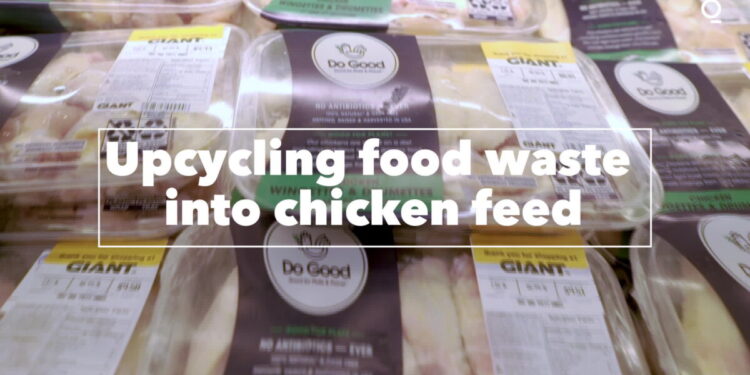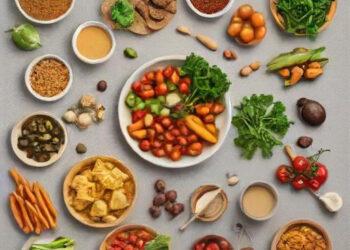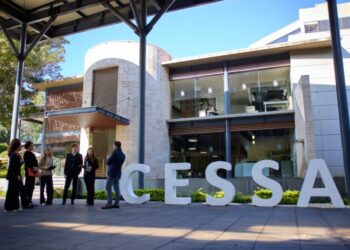-KH News Desk (cbdigital@imaws.org)
Do Good Foods turn upcycled food waste into feed for animals to increase the sustainability of animal protein production and decrease landfills.
Do Good Foods formed by Hal, Matt, and Justin Kamine, founders of the Kamine Development Corporation mission is to increase the sustainability of animal protein production y keeping food waste from piling up in landfills. They plan to sell poultry which they claim as ‘carbon-reduced’ chicken. This company is backed by $ 169 million from asset manager Nuveen to establish its first product Do Good Chicken.
The inspiration to turn upcycled food waste into feed for animals began several years ago when the co-founder brothers Justin and Matt Kamine grew up on a farm in New Jersey. They feed chickens, pigs, and pets with the leftover food which helped these animals to grow strong. Later, this idea laid the foundation to collect food leftovers like fruits and bagels from grocery stores. They process it with typical feed ingredients like corn and soybeans and feed their poultry. “The best usage of food is to give it to humans to eat. The next best is to give it to animals. We’re just bringing that idea to the masses to showcase to the world that we can use our food system to solve our environmental problems”, said Justin, co-CEO, along with his brother.
The co-CEO Justin said that the company’s primary goal is to upcycle surplus food into feed in every major metropolitan area, and to have Do Good Chicken and Eggs across the country in the near term. He also added that they can continue to scale plant-based proteins, though the animal agriculture industry is still one of the largest. They are aiming to create a closed-loop system that’s economically viable and empowers consumers to be a part of the solution. This allows the customers to fight against food waste.
According to the Upcycled Food Association, supermarkets dispose of about 43 billion pounds of food every year which accounts for 10% of all food waste in the U.S. Last month, the company announced that it has converted approximately 27 million pounds of food waste and saved 3,100 metric tons of CO2. The co-CEO says that the production of Do Good Food products adopts the most effective ways to lower emissions in the food supply chain.
According to Feeding America, at least one billion pounds of food is wasted in the U.S. which is approximately equal to 40% of the country’s entire food supply. The Sustainability investor group, FAIRR also said that the majority of the emissions from poultry and egg production come from the production of feed. Do Good Foods’ solution of upcycling food waste into feed , allows for making a measurable, formulaic, and direct contribution to lower carbon emissions. This allows the consumers to have meat without changing their habits.
The Kamines have plans for rapid expansion, nationwide. Do Good Foods first producing facility was built in Fairless Hills, Pennsylvania. It has two under construction in Fort Wayne, Indiana, and Selma, North California. This expansion allows them to launch their first product- “carbon-reduced” Do Good Chicken. The company has selected stores in Philadelphia and New York City regions in 2022. Do Good Chicken is made available at Jewel-Osco stores in Chicago and Morton Williams stores in New York City areas. Last December, launched Do Good Eggs with Post Holding’s Michael Foods at its service locations. Do Good Eggs approximately prevented one pound of carbon emissions from entering the atmosphere. While other food-related companies are upcycling through introducing sustainable packaging, Do Good Chicken products save four pounds of surplus grocery food and three pounds of emissions, said, Matt.
“We provide many of these partners a quantifiable carbon impact receipt at the end of each month so that they can tally up the pounds of food waste and greenhouse gases they are saving solely by the amount of chicken they’re selling. We hope that if it’s priced the same and tastes the same, consumers will consider doing good for the environment with a quantifiable equation to combat climate change,” Matt said.
Cost is one of the important factors in selling a new product, especially during a period of heightened food inflation. Matt, co-CEO said that Do Good Chicken is priced equal to standard poultry and less than organic chicken at grocery stores. The Kamines said they are focusing on eggs and chicken right now. They are also focussing on other products such as beef which could make its way into the Do Good portfolio.







